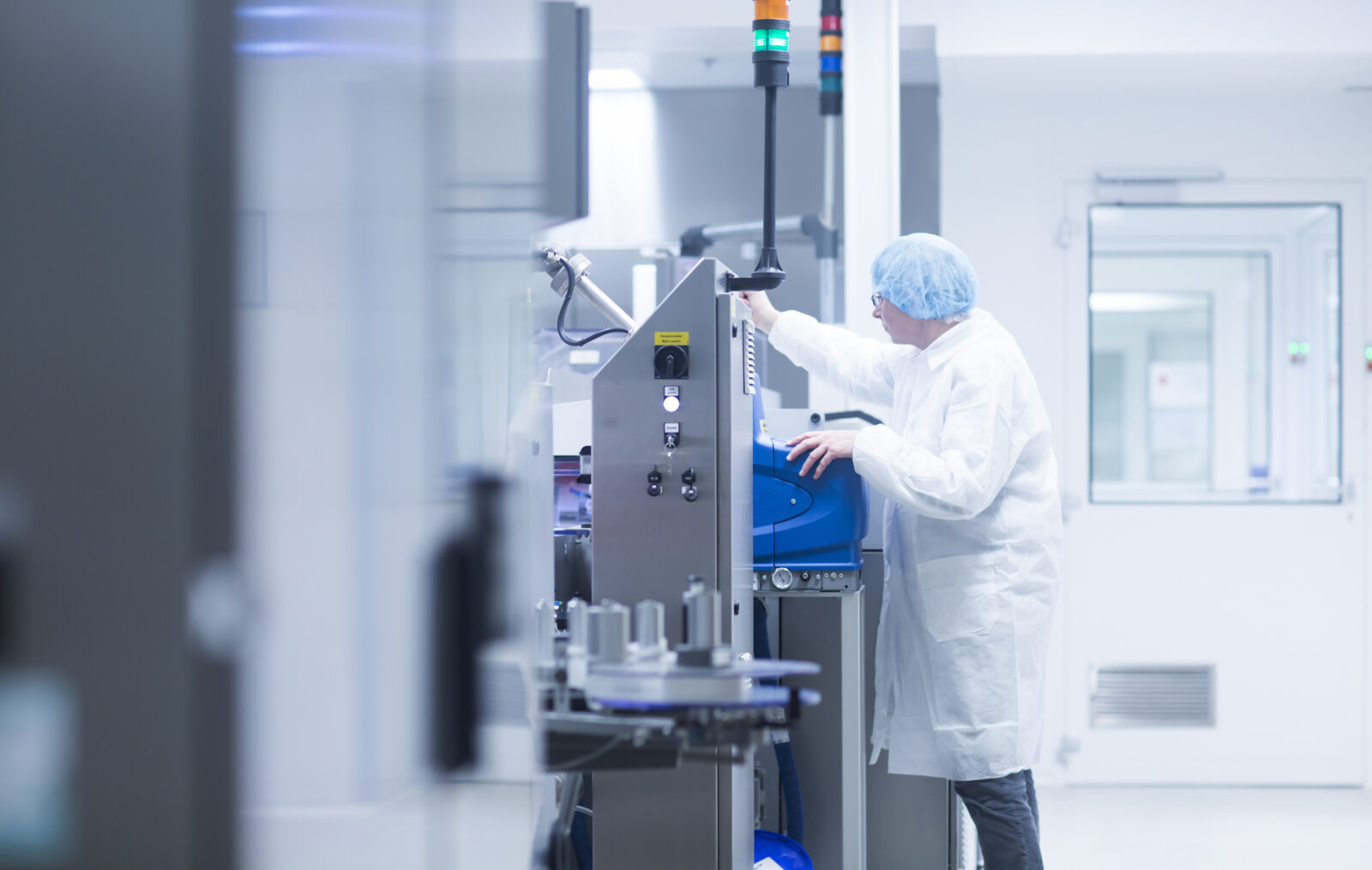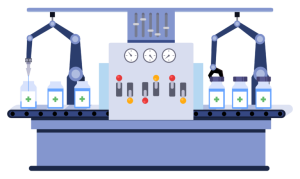The future of pharma following the fourth industrial revolution
The fourth industrial revolution is already shaping the very way that the pharmaceutical sector is functioning.

We are increasingly seeing businesses adopting smart and autonomous systems that are fuelled by data and machine learning. You could be forgiven for thinking that such advancements will automatically make life much easier over the coming years, with technology preparing to shoulder a vastly increased burden as Industry 4.0. becomes more mature.
However, pharmaceutical firms should not rest on their laurels. Without sufficient preparation, firms will not be able to take full advantage of the changes ahead.
Issues that need to be addressed
Pharmaceutical firms are currently facing growing challenges.
These include globalization, an ever-evolving supply chain throwing up some complex issues, ongoing price and cost pressures, and the advent of personalized medicine.
Add to this mix a fluctuating global economy, the ever-present, life-threatening issues caused by the pharmaceutical forgers, a reliance on old and antiquated systems in some quarters of our sector, and the problems caused by the recent Covid pandemic, and you begin to see that preparation is vital.
If such issues are not addressed now, pharmaceutical firms cannot begin to hope to enjoy the many benefits that are on offer from a hyper-connected world.
What benefits will Industry 4.0. bring?
While Industry 4.0 has been called a new industrial revolution, in reality, its implementation more closely resembles an evolution in which digitalization and automation meet very complex product portfolios and life cycles.
Digitalization will increasingly connect everything, creating new levels of transparency and adaptivity. This will enable faster decision making and provide in-line and in-time control over business, operations, and quality. It will also require higher levels of security, since connected systems have the potential to heighten vulnerability.
A combination of cyber-physical systems, the Internet of Things and the Internet of Systems will power Industry 4.0 and allow the smart factory to become a reality. As a result of the support of smart machines that keep getting smarter as they get access to more data, the global pharmaceutical sector will become more efficient and productive and less wasteful.
Ultimately, it’s the network of these machines that are digitally connected with one another and create and share information that will result in the true power of Industry 4.0., something that up until the beginning of 2020 would have appeared a simple process.
Continued track & trace cooperation.
The advent of the virus also highlighted the importance for product track-and-trace to work together, resulting in a supply-chain which will minimize costs for pharmaceutical companies and lead towards a new standard of openness and cooperation in the Industry 4.0. era.
Indeed, we are already seeing the implementation of agile supply chain regulation which will require a strong industry-standard open interface and interoperability. The hardware and the software among different vendors needs to be much more aligned and should work much closer together, resulting in much more open and cooperative serialization processes. Machines need to speak to each other in a common language, regardless of the manufacturer. The importance of this cannot be over-stated. To be able to track every single item, at every single stage of the process from source to supply to consumer, is essential.
This will be a particularly important for the everyday production of personalised medication. It will give all concerned – from the producer through to the end consumer – the confidence their individual needs are being met and will enable complex prescriptions to be produced as a matter of routine.
This will be made more difficult without the wholesale adoption of Industry 4.0. and the coordinated benefits it will bring to the track and trace sector.

The practical applications of Industry 4.0.
Industry 4.0. will revolutionise the way the pharmaceutical sector works. Once only possible for international blue-chip corporations, robotics will become much more affordable and available to organizations of every size. From picking products at a warehouse to getting them ready to ship, autonomous robots can quickly and safely support manufacturers. Likewise, we will see distribution centres that will use autonomous cranes and trucks to streamline operations as they accept shipping containers from the ships.
Since connected machines collect a tremendous volume of data that can inform maintenance, performance, and other issues, as well as analyse that data to identify patterns and insights that would be impossible for a human to do in a reasonable timeframe, Industry 4.0 offers the opportunity for manufacturers to optimize their operations quickly and efficiently by knowing what needs attention.
We will also see logistics and supply chains optimised much more than we have seen before. A connected supply chain will adjust and accommodate when new information is presented. If, for example, a weather delay ties up a shipment, a connected system can proactively adjust to that reality and modify manufacturing priorities.
Conclusion
Industry 4.0. will give the pharmaceutical sector an opportunity to revolutionise the way it works.
All individual firms, be it medicine producers, track-and-trace specialists, or logistics providers, need to look now at what they need to do to prepare for Industry 4.0. Indeed, large components of it are already here and have been adopted by many organisations without realising it.
The benefits of Industry 4.0. are enormous. However, preparation is the key. If the pharmaceutical sector doesn’t address some of the issues which are present now, or fails to fully get ready for all that Industry 4.0. will bring, there is no way that all of the cutting-edge systems will be able to perform at their maximum operational efficiency.
This would be a very real shame – and one that will impede the future progress of the overall sector.
VIEW THE ORIGINAL ARTICLE HERE



